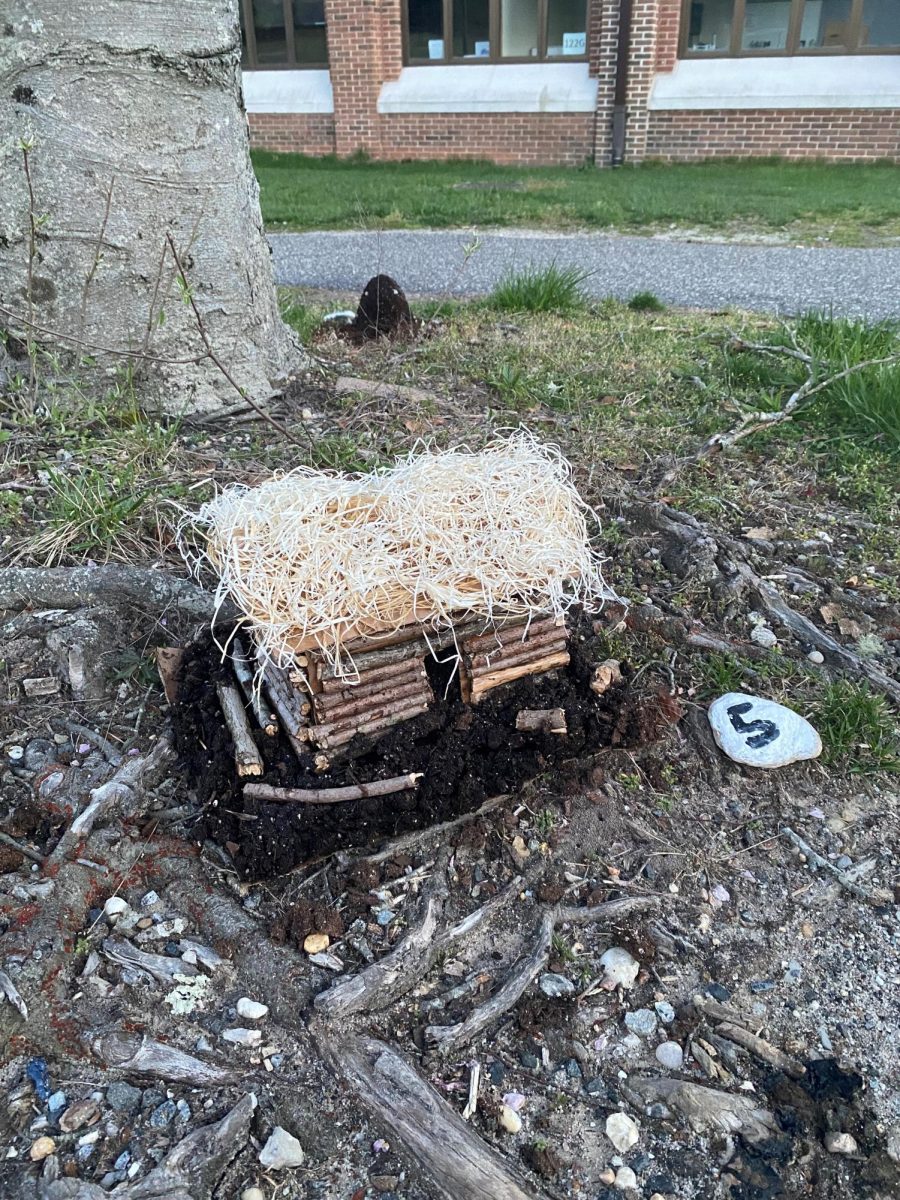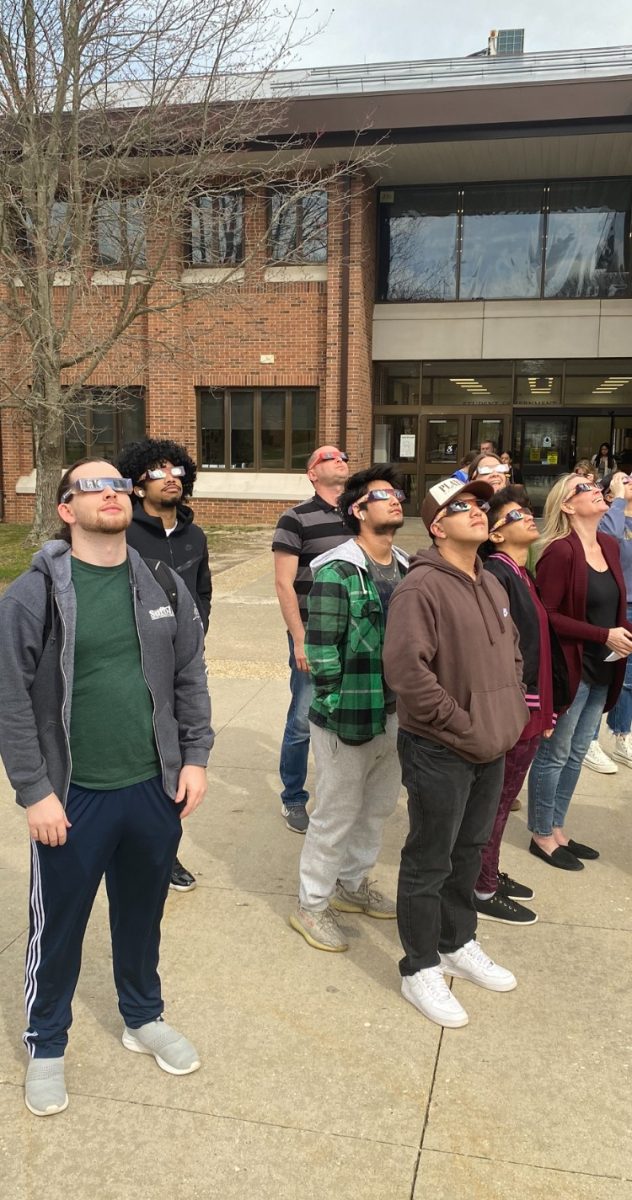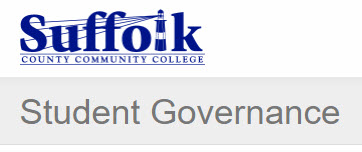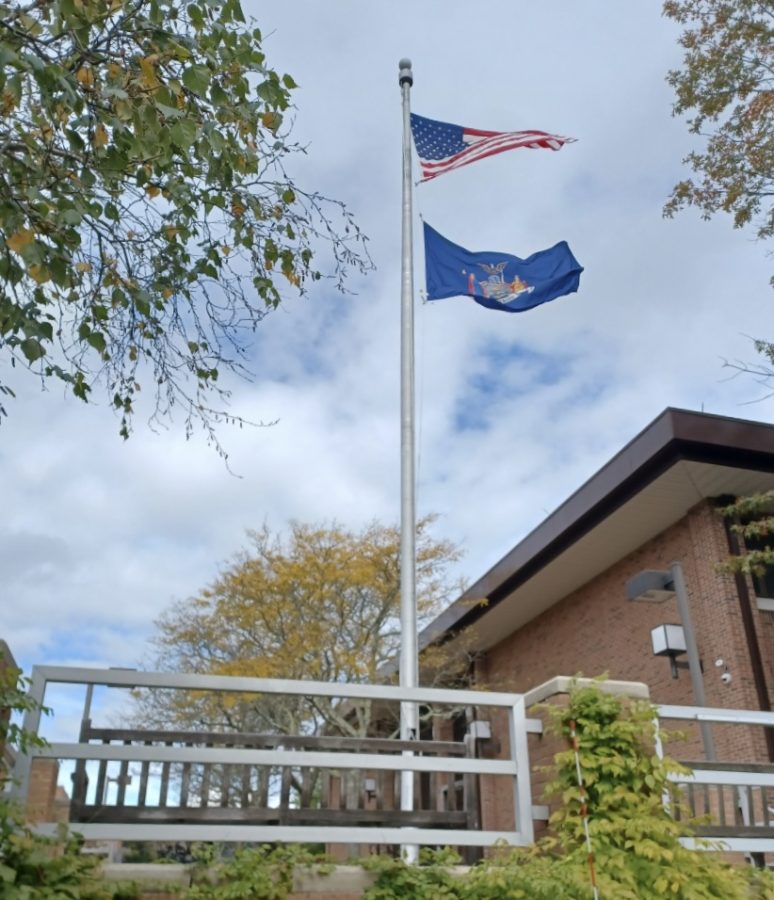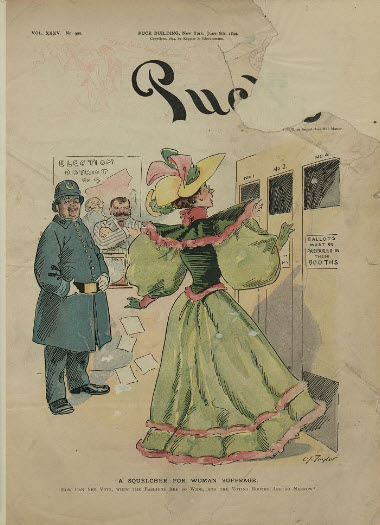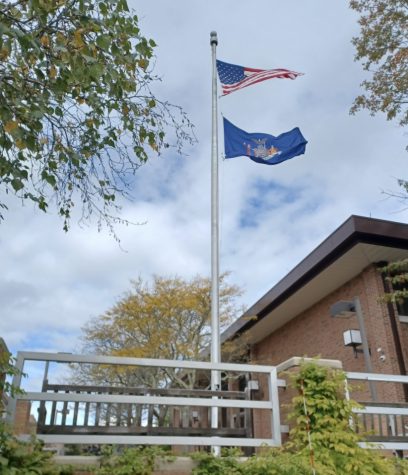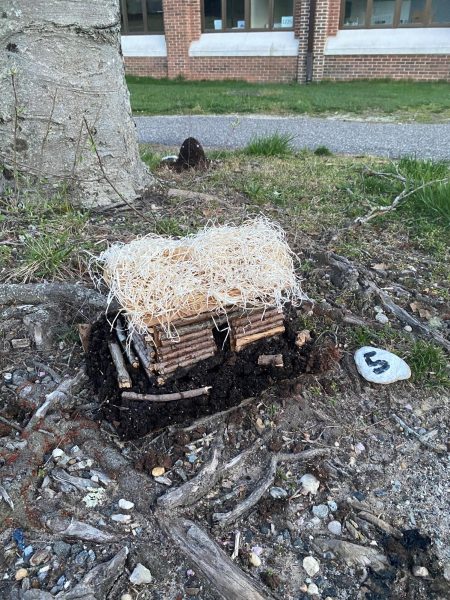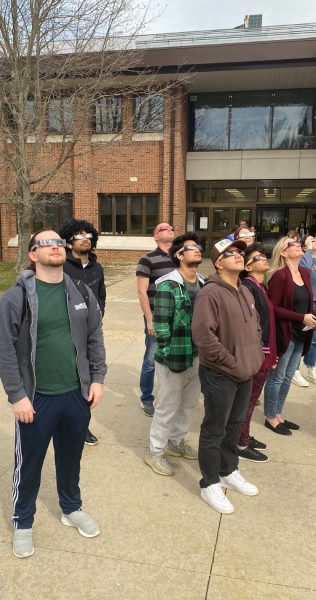The Story On President Bonahue’s Pay Raise
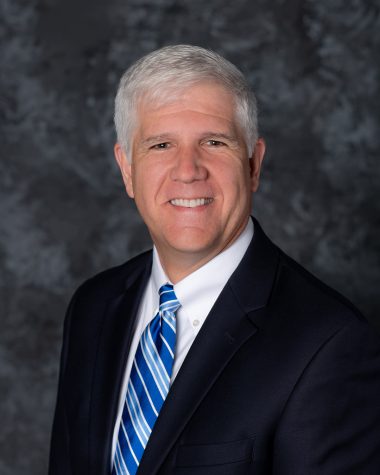 This August Suffolk County Community College President Edward Bonahue was awarded a 12 percent, or $37,000, pay raise by the SCCC Board of Trustees. The raise included increases to his annual salary and monthly housing allowances.
This August Suffolk County Community College President Edward Bonahue was awarded a 12 percent, or $37,000, pay raise by the SCCC Board of Trustees. The raise included increases to his annual salary and monthly housing allowances.
Dr. Bonahue was appointed as President of Suffolk County Community College in April 2021. He became College President on June 28, 2021, and was officially inaugurated on April 8, 2022.
Prior to SCCC, Bonahue served as Provost and Vice President of Academic Affairs at Santa Fe College in Gainesville, Florida. This is Bonahue’s first job as the president of a college.
Bonahue is currently in a three-year contract as SCCC’s president.
In August of 2022, the Suffolk County Community College Board of Trustees began the Presidential Evaluation Process. As Chairman Edmund Christopher Murray notes, the process has been long-used. As written in the official guiding principles of the process (available on sunysuffolk.edu), “As the Board of Trustees determines the policies that govern the College, the evaluation process reviews the President’s performance in implementing the policies set by the Board.” The president’s performance may be adjusted based on the performance, Murray notes.
This process runs from approximately August through June of the following year, and has been in use at the College since April 14, 2005.
The evaluation process consists of a few parts.
In August the president meets with the Personnel Committee of the Board of Trustees to discuss goals for the college in the academic year.
A representative group of at least 25 college and community stakeholders, chosen by the president in consultation with the Board of Trustees’ Personnel Committee, plus all the Board members, are surveyed for feedback on the president’s performance. Performance is based on the progress towards identified goals and leadership qualities. Stakeholders include such people as County Executive, a representative of the SCCC Faculty Association, a representative of Phi Theta Kappa Honor Students, the Chair of each campus’ governance, and a representative of one of the college’s certificate programs, among others. This part of the process takes place around March or April.
For purposes of the evaluation process, the survey respondents are grouped into three different categories: Internal Stakeholders, External Stakeholders, and Students/Alumni. A minimum number of people must be chosen from each category. The survey questionnaire is slightly different for each group based on their different perspectives. The survey includes questions about the president’s leadership skills, effectiveness, and community relationships.
In addition, during the period of evaluation, the president must complete a self-evaluation, which is essentially an argument for promotion: it should include progress towards institution-aligned goals, an assessment of strengths and areas of improvement, an estimation of impact on the college, and a review of key relationships in the community.
The president must also report on the status of the college, identify opportunities, and measure progress. In May and June, the evaluation results are reviewed and discussed between the Board and the president, and potentially modified.
On July 21 the Board of Trustees’ Personnel Committee met to further discuss the raise before recommending it to the full Board of Trustees.
On July 26, 2022, the Suffolk County Legislature’s Education & Labor Committee approved SCCC’s College Operating Budget.
Following this, the Board of Trustees met on August 18, at which time the Board approved Resolution No. 2022.53. This resolution raised Bonahue’s salary by 12%, starting retroactively on June 28, 2021.
Before the raise, Bonahue’s presidential compensation package amounted to $313,000, and included an annual salary, as well as housing and transportation allowances. Bonahue’s annual salary before the raise was $265,000; it was changed to $290,000. In addition, his housing allowance was changed from $3,000 per month to $4,000 (or from $36,000 per year to $48,000). After the raise, Bonahue’s compensation package amounted to $350,000 per year.
According to Trustee Gemma deLeon-Lopresti, Chair of the Board of Trustees’ Personnel Committee, there were additional considerations for the president’s raise. For instance, the Committee compared the president’s current salary with other community college president salaries; based on the size of the college (SCCC is the largest, physically and by population, community college in New York), President Bonahue’s salary was third highest, Chairman Murray says. deLeon-Lopresti also noted the competitive environment of finding community college presidents, and did not want to risk losing Bonahue, especially after the two-year long, “arduous” search process to find him. Inflation and the cost of housing were additional considerations.
Chairman Murray notes, “We hired him at a slightly lower salary because he was not a known entity.”
Says Trustee deLeon Lopresti at the July 21 Committee meeting: “So, given all of that context, the Personnel Committee deliberated, we reviewed what was happening, we kept it in context for what’s best for the students, what’s best for the college, and we decided… to recommend to the Board that we consider increasing Dr. Bonahue’s salary to $290,000 per year, and also to increase the housing allowance from $3,000 per year to $4,000 per [month].”
Says Chairman Murray: “[W]e all feel that Dr. Bonahue has done a really exemplary job, that… it’s only been a year, but he has undertaken some major initiatives. We feel very comfortable and happy with him and… we wanted to show support, and we felt that this was a justifiable increase and the best for the college.”
Other college employees were also given a raise, approved by the Suffolk County Legislature. However, the raises were not to the same amount as President Bonahue. According to Dr. Dante Morelli, President of the Suffolk County Community College Faculty Association, Association members and the Guild of Administrative Officers were given 1.6% raises; adjuncts received 2.5% raises.
Morelli notes that in the history of the Faculty Association, no one has ever received a 12% raise.
On October 7, the Suffolk County Legislature’s Education & Labor Committee met with President Bonahue and Chairman Murray with regard to communication, or a lack thereof, surrounding the president’s raise and the college’s low enrollment.
Some Legislators had issues with the raise or the way in which it was carried out.
Legislator Robert Trotta mentions that, of the 62 counties in New York, Suffolk County has ranked 61 or lower for fiscal stability for the past four years. He claims that by raising the president’s salary 12%, while the amount that most other college employees received was a 2% increase, the Board of Trustees was “wrecking the morale of [the college].”
“That’s wrong,” Trotta said.
Addressing Chairman Murray, Trotta concluded, “The message you sent was that the rank and file workers of [Suffolk County Community College] don’t matter. That’s what you sent. You may think you didn’t, but that’s exactly what you did.”
The Board of Trustees did not notify the Suffolk County Legislature about the raise. The Legislature was unaware that there would be a raise.
“We did not hear about [Bonahue’s pay raise] before we approved the college’s operating budget,” Legislator Trish Bergin recounts, “and in fact, the raise didn’t appear on the Board of Trustees’ agenda until one day before the [August 18th meeting], so there was absolutely no public notice prior to [the vote on the president’s raise]. It looks like it was deliberate to keep the information from the Legislature, from the public.”
Bergin continues, “So why your information and data that you accumulated back in January wasn’t provided to this legislature to justify a $37,000 pay increase for the president, who’s been locked into a three-year contract, is unacceptable.”
Murray replies, “I’ll take the blame for that. I can only say that I don’t think we’ve ever done that before, in the sense of providing information about raises for prior presidents, prior to them being voted on by the Board of Trustees, to the Legislature.”
“It was just something that was not discussed or thought of and had not been done before.”
“There was never any intent with regard to the budget,” Murray clarified.
Murray mentioned a possible solution of moving the evaluation process up by two months, so that the process would be finished before the College Operating Budget is approved.
Some of the Legislators expressed approval of Bonahue’s performance as president.
Legislator Samuel Gonzalez believes that Bonahue’s work as president, including newly implemented programs and certificates, has had a positive impact on the students in his community. “[A]ll I say is keep up the great work. I am very proud of the job you’re doing and everything you’re doing to try to help our children to thrive with these certifications. So thank you, Dr. Bonahue, and everything that you’re doing.”
Legislator Leslie Kennedy says, “Dr. Bonahue, I have to tell you that you are worth a million dollars.” She mentions some of Bonahue’s accomplishments as president, including the use of an incubator on the eastern campus to help Suffolk County businesses and helping students find a path in automotive technology.
I spoke with several employees on the eastern campus about the raise. Some of them expressed displeasure at the raise, relative to the percentage increase of other SCCC college employees’ salaries, and they criticized the survey process, which does not include all college employees.
Dr. Morelli commented on the raise. “We [at the SCCC Faculty Association] appreciate the fact that the Board of Trustees recognizes the impact inflation has had on the president’s salary, especially after one year of service. We too hope the Board will recognize the same for the faculty who perform important work for the students of Suffolk County Community College.”
Legislator Trotta posed the question, “Did you have any employees involved in [the evaluation process], did you have professors, did you have the janitor involved, did you have all these other people?”
Murray said, “They were part of the survey; they had an opportunity to comment on the performance. The results from the surveys, of the professors, of the AME employees, was all exceptional.”
I spoke with an employee at the eastern campus, who wished to remain anonymous, about the president’s raise. He presented a vision for how one might see the situation in better perspective: every employee at the college is important, including lower profile positions such as maintenance workers, who do vital work of the college. Such employees, he argues, are equally important in comparison to upper administrators, for example. However, the difference in the amount of the president’s and many other employees’ raises – 12% compared to 2%, respectively – does not reflect this.
President Bonahue acknowledges, “This year [the presidential evaluation process and the approval of the College Operating Budget] happened, like, right on top of each other in a way that… made the timing look difficult.”
Bonahue noted the steps Chairman Murray was taking to solve the issue in the future.
Bonahue thinks of the Board of Trustees, “They were very conscientious, [and] they were very objective in their evaluation…”
He further notes, “I’m happy that the Board was pleased with my performance, and I was surprised that the Legislature came back and requested more information from [Chairman Murray].”

